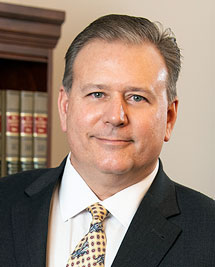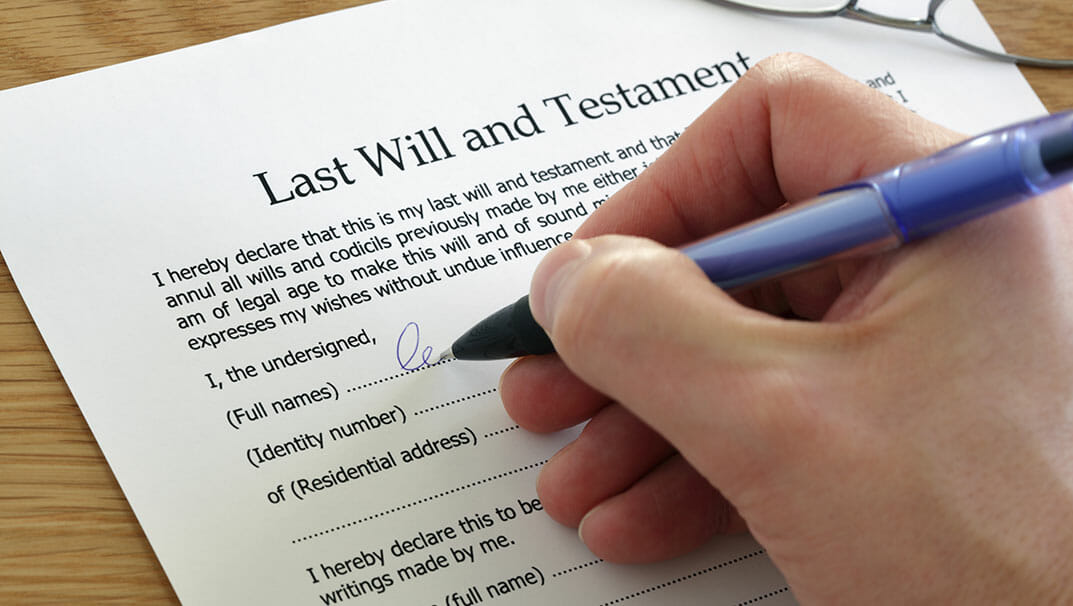A Lexington probate attorney can help you with all your estate planning needs.
Our Kentucky probate attorney knows that, for many clients, estate law is full of clunky terms that are unfamiliar.
While you’ve likely heard of wills and beneficiaries, few people can correctly define testator, decedent, executor, or probate. Yet, all of those words will probably come into play during your lifetime at one point or another, and all of them are related to the process of what happens to the ownership of property when someone dies. From the Latin for “something proved,” probate does refer to the judicial determination of whether a will is valid. However, it also encompasses the method by which an estate is administered and processed through the legal system – meaning that probate can occur even if there is no will.
The complexities of probate law require the guidance of a skilled Kentucky probate attorney. Perhaps you are uncertain of your rights and responsibilities, or you simply may not know where to begin. The Lexington probate lawyers at Bunch & Brock are accomplished legal professionals with more than 35 years of legal experience. Offering comprehensive counsel along with friendly, personal service, we have efficiently and effectively guided many people through the probate process. Put our experience to work for you.
Contact us today by calling 859-254-5522.
A Probate Lawyer in Lexington, KY, Can Ensure Everything is Done Properly to Avoid Problems and Conflicts
Understanding the purpose of probate and requirements that need to be met
Probate is a court-supervised legal process to settle an estate after someone’s death. A personal representative, called an executor, who is named in the will or appointed by the court if there is no will, is given the legal authority to gather and value assets, pay debts and taxes, and transfer assets to the people you wish to inherit them.
The purpose of probate is to prevent fraud after someone’s death. No one can touch the estate until a judge determines that:
- The will is valid
- All the relevant people have been notified
- All the property has been identified and appraised
- Creditors and taxes have been paid.
At that point, property can be distributed and the estate is closed.
A Probate Lawyer Explains Terms You Need to Know
Understanding legal terms of probate will help simplify the process for everyone involved.
- Testator – the person who makes a will
- Beneficiary – anyone who receives property from the testator
- Executor – the person appointed to make sure the property is disposed of according to the testator’s wishes
- Decedent – the person who has died — who also may have been the testator at one time if a will was drafted.
If there is a will, the probate court examines it to determine if it was legally created. In order to be valid, wills in Kentucky are required to be in writing, signed and dated by the testator, and signed by witnesses. Wills are examined to see if they list all the testator’s assets, if the assets are properly valued, and if the assets can be passed on the way the testator wanted. For example, a testator cannot disinherit his or her spouse unless there is a prenuptial agreement stipulating otherwise.
A Lexington, KY, Probate Attorney Determines Which Assets Can Avoid Probate
There are assets that can be passed on without going through probate
The decedent’s taxable estate includes all the assets in which he or she has an interest at the time of death, but only those assets that are held individually have to go through probate. Assets that are jointly owned with a right of survivorship pass to the second owner when the first owner dies, so they are not usually subject to probate.
Other assets that can be passed on without going through probate include:
- Tenancy by the Entirety or Community Property With Right of Survivorship – These are forms of property ownership that function like joint tenancy, in that the survivor owns the entire property at the death of the other tenant, but these forms of ownership are only available to married couples.
- Policies and Accounts with Beneficiary Designation, such as bank accounts, brokerage accounts, retirement accounts, and life insurance policies have named beneficiaries entitled to the assets in the account or the proceeds of the policy.
- Assets in a Living Trust – Living Trusts are created mostly to avoid probate. The person setting up the trust, called the trustor, designates a person, called a trustee, to hold property for another person, called a beneficiary. If you are setting up a living trust, you can make yourself the trustee and keep full control over all property held in the trust while you are alive. You also designate a successor trustee, often a spouse or a child, to handle and distribute property after you die.
Cash, personal property, real estate, assets held as tenants in common, and named beneficiary assets that do not name anyone are generally subject to probate. The assets that make up an estate have to be distributed in a specific order.
For example, any debts or taxes owed by the decedent will be paid first. Creditors that have a valid claim are typically paid in the following order: estate administration costs, family allowances, funeral expenses, taxes, and debt.
When all of the creditors are satisfied, whatever is left over is distributed to the beneficiaries named in the will.
If the decedent didn’t have a will or it is determined that only part of the estate is covered by a valid will, probate applies Kentucky law to establish who gets what and legally transfers title to those people. Probate can be quite helpful even where a decedent did not leave behind any property to transfer, if he or she had creditor problems or was the subject of a potential lawsuit, because it allows for all of the decedent’s debts to be finally settled. That can be very beneficial to a decedent’s survivors.
Probate Attorneys Explain Small Estate Limits
If a Kentucky resident died with an estate that falls under the “small estates” limit in Kentucky, there is a simplified probate procedure, often called a “summary probate.”
Probate courts are state courts, so the processes they follow vary from one state to another. In Kentucky, there is a simplified probate process for small estates that makes it easier for survivors to transfer the decedent’s property. The process is available where the will leaves no personal property, there is a surviving spouse and the value of property subject to probate is $15,000 or less, or if there is no surviving spouse and someone else has paid at least $15,000 in preferred claims. To determine if an estate qualifies for this shortcut or it must be subject to regular probate, it’s in your best interest to consult with a Kentucky estate planning attorney to review the options.

Client Testimonial
“Matt Bunch did an exceptional job for me with a very difficult, messy probate case. His response time was always quick. He was proactive in handling the case. I would recommend him to anyone looking for a great attorney.”
– Lee Ann Snelling (Google Review)
Call Our Kentucky Probate Attorneys for Help with All Probate and Estate Planning Matters
Some people try to avoid probate because it can be time-consuming and expensive. There are pros and cons to trying to limit the amount of a probate estate by maximizing joint tenancies, lifetime gifts, payable-on-death accounts and living trusts. The average time to complete probate is approximately six to eight months, and the delay in asset transfer can be a hardship for the decedent’s beneficiaries. Probate cases can also take years if the estate is very large, the estate continues to earn large amounts of income after the decedent has died, or if someone challenges the will. Costs in probate proceedings usually equal between two and five percent of the value of the assets that go through the process.
Dealing with a loved one’s estate can be a difficult time for the family. The experienced Kentucky probate lawyers at Bunch & Brock can help. We understand that each probate estate is unique, and we have worked hard to protect the best interests of hundreds of clients faced with the situation you are in now. We are committed to providing each of our clients with a high level of personal service, and we will walk you through each of the steps that must be taken. To schedule an initial consultation, please call 859-254-5522.

Attorney Matthew Bunch
Matt handles complicated bankruptcies and debt restructuring in Chapters 11 and 13 for both individuals and companies. He has also negotiated with multiple creditors on behalf of his clients to avoid bankruptcy. Matt is the firm’s lead litigator and handles contract disputes, certain personal injury claims and general litigation. [ attorney bio ]
















